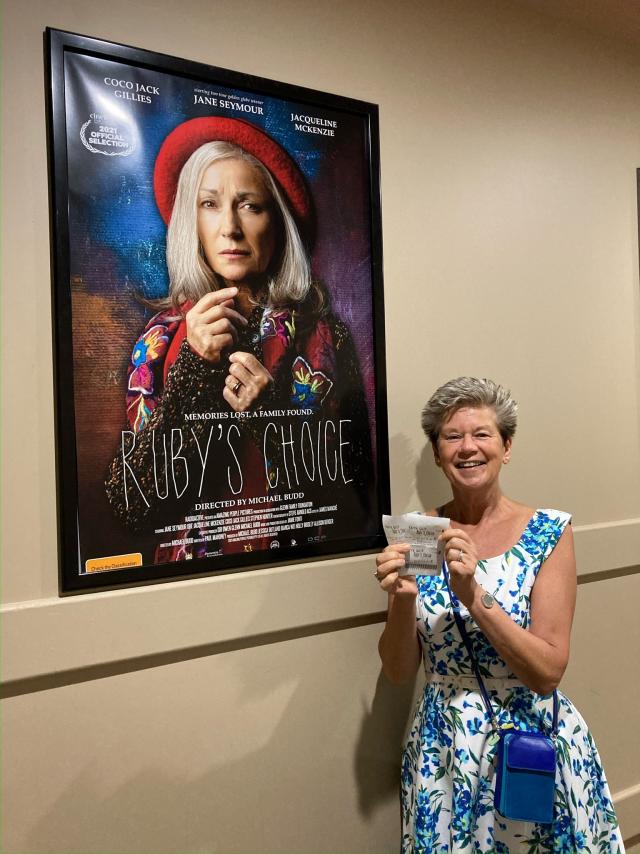What began as a small organisation run out of a home in Mooroolbark in the early 1990s, has expanded into an international dementia care program running across five continents.
Jane Verity, founder and CEO of Dementia Care International, originally started pursuing a humanised form of dementia care philosophy when training as an occupational therapist in her home country, Denmark.
“I worked under a professor that was very advanced in her ways of caring for people with dementia and that’s where I learned firsthand that it is possible for people with dementia to improve and I brought that with me to Australia,” she said.
“It’s not very well known that it is possible for people with dementia to improve. So we are definitely not talking about a cure that’s important to state but we’re talking about that it is possible for people with dementia to improve.”
While humanising dementia was an important part of the program Ms Verity established, facilitating dementia rehabilitation was also critical.
“It all started out with developing education for staff, that’s so important and developing a beautiful program for people with dementia that is focused on enabling them to improve,” Ms Verity said.
It became even more clear to Ms Verity that she was on the right path when her mother was diagnosed with dementia and emigrated to Australia at 80 years old, where she worked in the Mooroolbark office doing small tasks and was loved unconditionally.
Understanding that need to show love and compassion to those with dementia and their families, Ms Verity produced the Spark of Life philosophy.
“People with dementia very often find themselves misunderstood. As the dementia progresses they may make mistakes and they may often be told off for their sometimes uncharacteristic behaviour.
“So they start to lose hope and they start to lose confidence and we can see that in their eyes.
“That is what’s at the core of the Spark of Life philosophy to connect with love and empathy and reignite that spark inside the person.”
Ms Verity said the Royal Commission into Aged Care Quality and Safety really showed the lack of basic compassion that was being shown in all aged care settings.
But while the philosophy was launched in Australia and has been successful in multi purpose services in rural communities, Ms Verity said the uptake has been more prevalent overseas, something she would like to see change locally particularly in the wake of the pandemic.
“It’s slowly growing but the uptake has always been greater around the world and we simply put it down to ‘it’s hard to be a philosopher in your own backyard’. We always look across to other countries for the news and I think it’s simply what’s happening.
“It’s making a big positive impact around the world especially in the developing countries where there’s so much misunderstanding about, or maybe lack of understanding about dementia.
“So many are thought to be mad and are excluded from the community, excluded from the families. Educating and teaching people what dementia really means and what we can do for people with dementia is so important.”
Although an estimated 487,500 Australians live with dementia and as the second leading cause of death of Australians, the stigma around dementia remains even here.
In part trying to change that, Dementia Care International partnered with the producers and makers of a film called Ruby’s Choice, an empowering vision of the strength of someone with dementia.
“Previous films have always taken the perspective of the carer and how challenging it can be but this film really takes the perspective of the whole family while it focuses on the strengths of the person with dementia.”
The film premiered in March and has since finished its circulation at the cinemas but Ms Verity said should a group of 30 people have a local cinema that is willing to screen the movie for two nights, the cinema can contact Radioactive Pictures to organise.
Ms Verity said the change in attitude to responding and caring for someone with dementia is imperative to how they live with dementia and would encourage local aged care organisations to contact Dementia Care International to start implementing the philosophy.
Still based in Mooroolbark, Ms Verity said “we would love to work with our local communities and give them extra nurture and service because we are so close and personally, I can hop in and out and give that extra support.
“It’s something I have had a dream of if we could really support our local community, our local age care services.”







